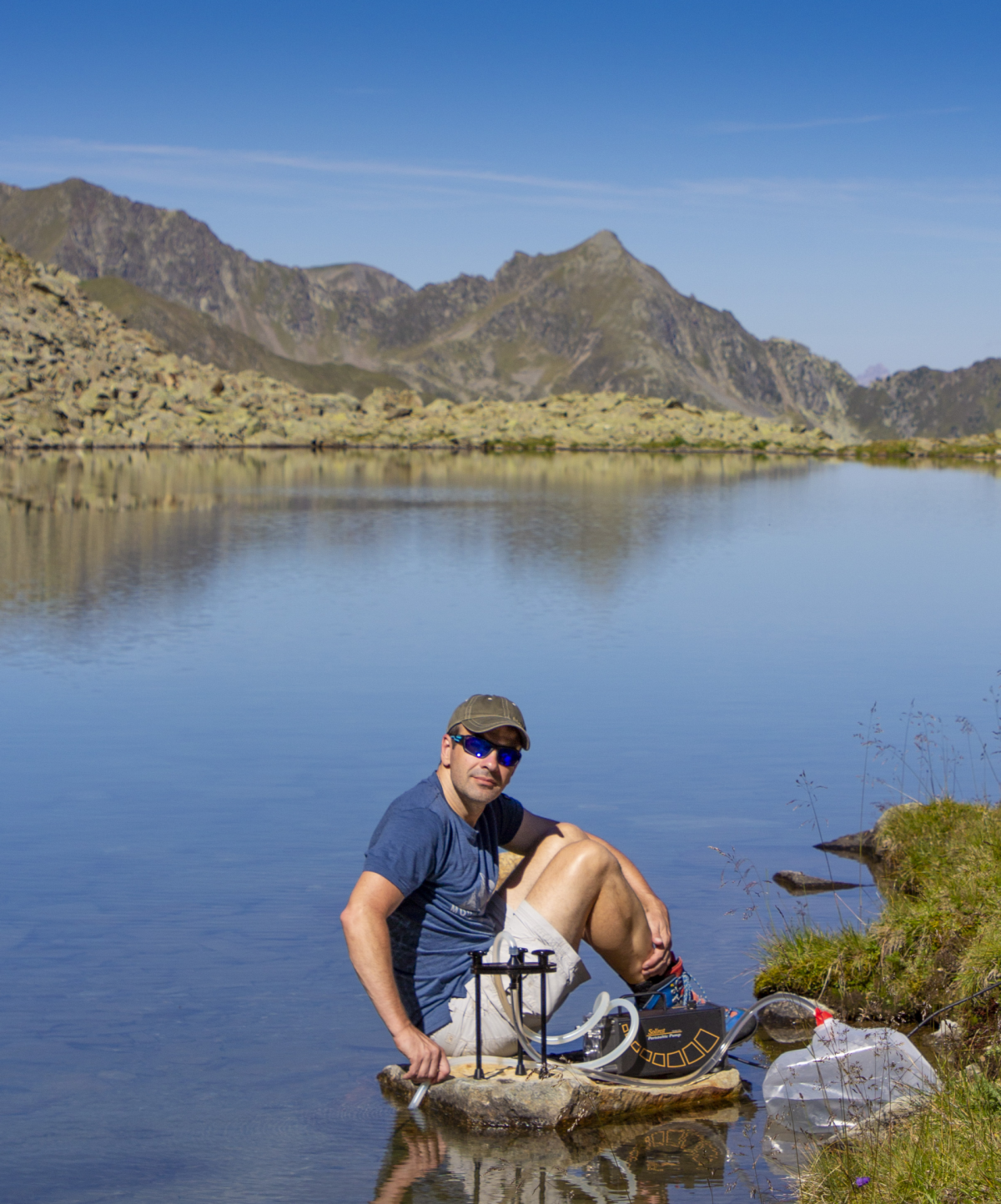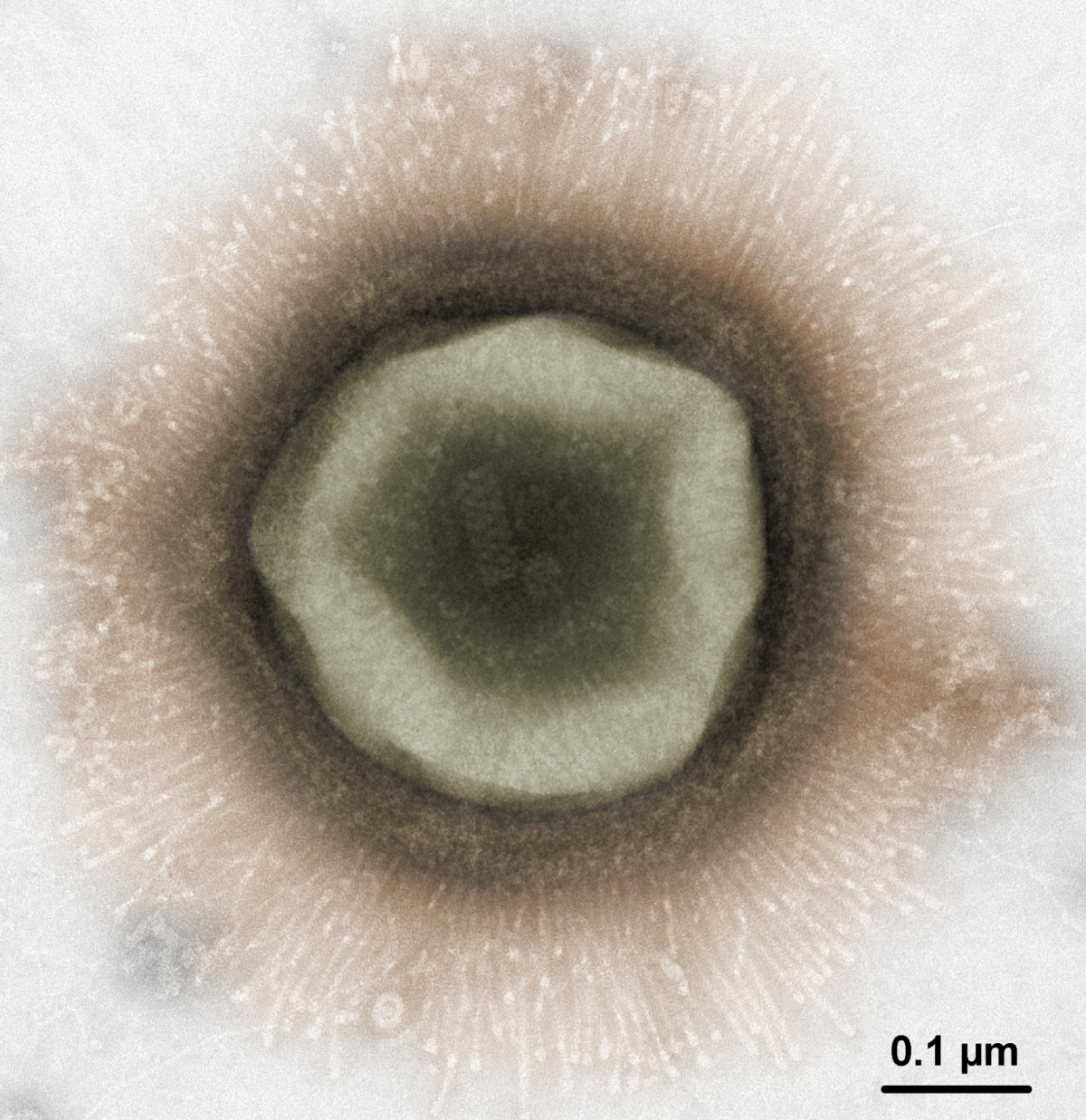- Press Office
- Press releases
- New research group "Protist Virology"
New research group "Protist Virology"
Viruses play an important role in the environment: They control the health and growth of all organisms, influence nutrient cycles, shift genetic information and drive the evolution of their hosts. Viruses can be found wherever living organisms reproduce - in salt and fresh water, in soil and sediments, even the atmosphere contains aerosols loaded with virus particles.
With the help of new technologies, especially the cost-effective sequencing of DNA molecules, it has been possible to describe an unimaginable variety of viruses in recent decades. We now know that a large part of the genetic reservoir on our planet is stored in the genomes of viruses. However, exactly how individual viruses have adapted to their hosts and interact with their environment remains largely unknown.
Ecology and evolution of viruses in unicellular eukaryotes
Matthias Fischer's team is trying to shed light on a very specific group of viruses. These are so-called giant viruses, which are comparable to bacteria due to their size and the complexity of their genomes. The largest of them can be seen under a light microscope and contain more than a thousand genes. So far, only a few giant viruses have been described in detail. This is also due to the fact that they mainly infect eukaryotic microorganisms. This group of organisms, also known as protists, is an essential component of ecological food webs but, unlike bacteria, has been researched very little.
"We are specifically looking for new giant viruses that we can multiply along with their hosts in the laboratory in order to study their infection biology," says Fischer. "We then transfer the findings from our lab studies to the natural environment of these complex viruses. This way, we learn a lot about their reproduction strategies, but also about their ecological and evolutionary significance."
As part of the newly funded ERC project "CAPSOLUTION", Fischer and his team will investigate the structural and genomic diversity of giant viruses in nutrient-poor mountain lakes. Over the next five years, the researchers want to track down protists and their viruses in high-mountain lakes in the European Alps. They will characterize the natural communities of these microorganisms using electron microscopy and Omics methods and introduce new virus-host systems into laboratory culture in order to investigate specific surface structures of giant virus particles.
Virophages as cell savers
Another focus of the new research group is on interactions between giant viruses and smaller viral parasites, also known as virophages. Virophages often multiply at the expense of the giant viruses in the shared host, which weakens the production of new giant viruses. Since an infection with giant viruses is usually fatal for the host, the host population benefits from virophages. Matthias Fischer's team was able to show that virophages in the marine zooplankton species Cafeteria burkhardae function as a defense system against giant viruses.
"It is a great privilege for me to be able to conduct our research at the Max Planck Institute in Bremen," says Fischer. "With its collaborative environment, excellent infrastructure and international atmosphere, the Institute provides us with ideal working conditions. I am very much looking forward to working with the researchers in Bremen!"
Matthias Fischer studied biochemistry at the University of Bayreuth and completed his PhD in microbiology at the University of British Columbia (Canada). He then returned to Germany, where he worked at the Max Planck Institute for Medical Research in Heidelberg, first as a postdoc and later as a research group leader. Among others, he was awarded an EMBO Postdoctoral Fellowship and the Chica and Heinz Schaller Research Award.

